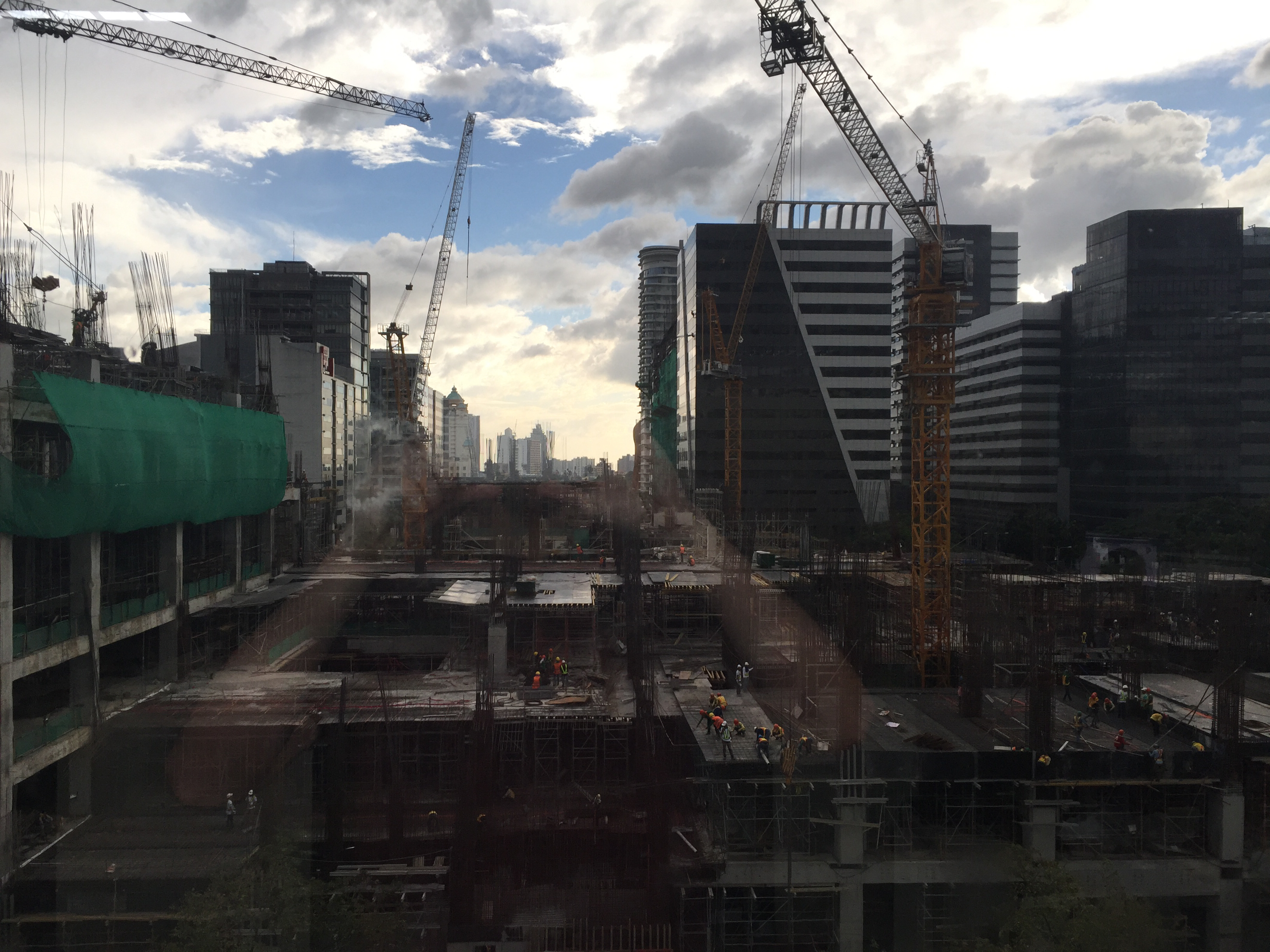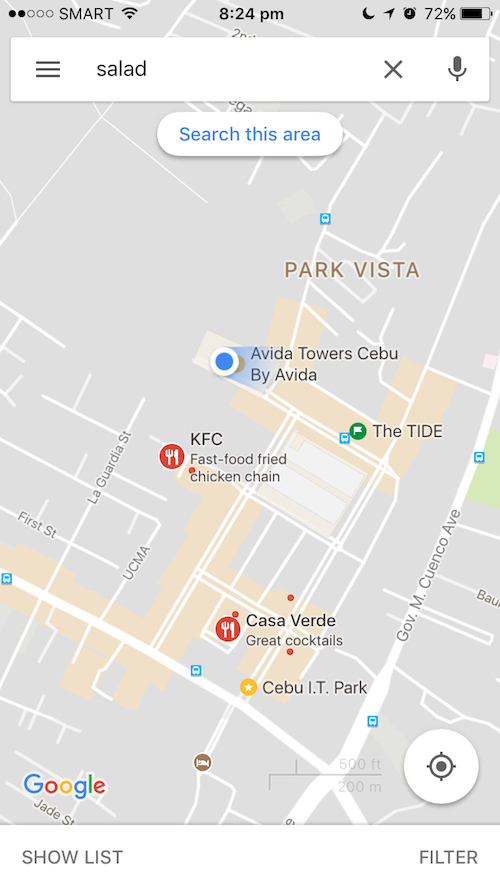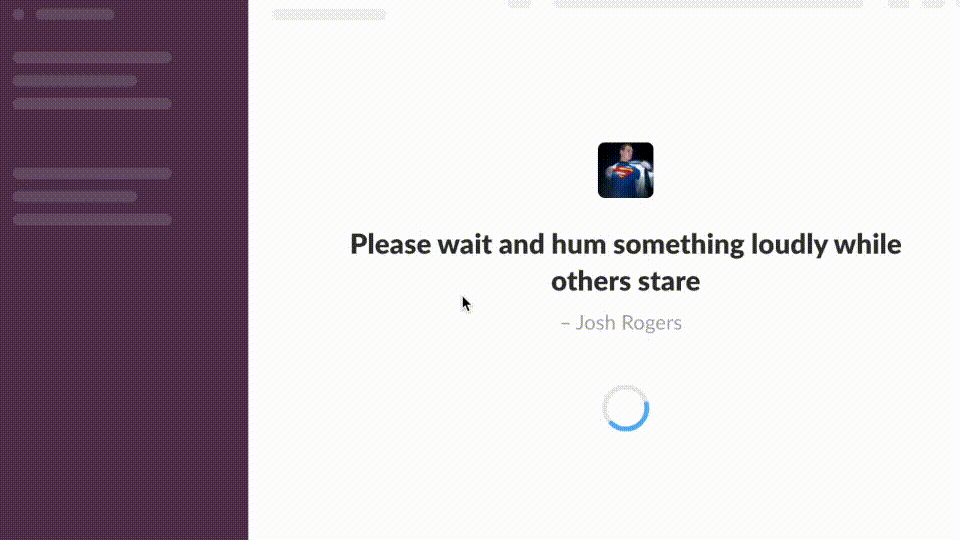The backstory
At the end of last year, I was given the opportunity to travel with my wife to the Philippines for a month. Instead of taking my hard-earned leave or saying no, I proposed an experiment to Grant and Craig: to work remotely overseas for that time. Our fearless leaders obliged, and our great experiment began, something for which I am rather grateful.
The plan: to work remotely for 1 month, either from home or a co-working space.
The place: Cebu, Philippines, in a little place called IT park.
Luckily, the timezone difference between Adelaide and the Phillipines is only 2 hours, meaning that I could make an early morning meeting by getting up at 7.00 am.
After a couple days of looking around, I settled on a great co-working space called ASpace. There were plenty of places around me (including the couch), but the offer of free filtered coffee and standing desks ultimately won me over.
I worked around 4 weeks, finishing up just before the Christmas holidays. I was working on existing projects that I already had a good knowledge on, and with a fair amount of automomy.
 The view from my co-working office in the Philippines
The view from my co-working office in the Philippines
What went well
I found that I was able to focus really well on tasks at hand. There were far fewer distractions from the general office hubub. And since talking to colleagues at the co-working space meant talking to strangers, I was less inclined to get stuck in a long conversation about Black Mirror, or the optimal way to eat a Kit Kat.
Communication with the Enabled team also felt more intentional. Instead of having to write things down, or important design descions being made over a casual coffee in the kitchen, they had to be written down and better thought through first. Something that I think benefited both sides of the relationship.
I also loved the ability to stagger my workday slightly with the team back home. Since I had an extra couple hours after everyone else went home, if there were tasks that needed finishing that day, it was pretty easy to handball them over to me.
For some reason, I also found meetings (especially internal meetings) to be more productive. At first this seemed counterintutive to me - but perhaps it was because there were fewer distractions, and more reasons to stay focussed…?
I love a good post-lunch nap. But for some reason back home, everybody seems to laugh at my siesta habit, despite how much more productive I feel afterwards. In the Phillipines, there is no such stigma, perhaps siestas - like fried chicken and basketball - are in the very DNA of the Filipino people.
What didn’t go so great
I often felt a little disconnected from the social aspects of working with a team. While calls and instant messages can fill this gap somewhat - there’s nothing quite like sitting down and sharing lunch together as a group.
I’m also a person of habits and rituals. I like to get up at the same time every day, work in the same desk and so on - structure helps me feel settled and aids my productivity. This was much harder to maintain while travelling or hot desking.
Collaboration also felt strained at times. I had reasonable internet, and was able to have nice long phone calls talking about the world and life to debug issues or review pull requests, but nothing beats sitting down together and just “hashing something out”.
Quiet workspaces. As much as I enjoyed my time (and the chilled tunes) at ASpace, it was sometimes hard to find a spot to make a phone call without fear of background noises. There were spaces I could hire, but they cost a whole lot more! It wasn’t really a major issue in the end, but for longer term work, perhaps this is something we would need to resolve.
Coffee. No amount of pre-ground filtered coffee can make up for the smooth freshly ground boutique roast that we have in the office back in Adelaide. A side effect of this, however, is that I managed to reduce my dependence on the beans for now.
 Trying to look for healthy eating options where I stayed
Trying to look for healthy eating options where I stayed
What did the rest of the team think?
I’m aware that this is just my own perspective, and the rest of the team has some more thoughts to add, so I’ve asked them for a little bit of their feedback.
Everyone I worked with was a fan of the frequent calls we ended up having at least once every couple of days, mostly with individual team members, but also for bigger meetings.
The project manager for a project I spent the most time on, Heath had this to say:
“Being able to touch base regularly was critical. Slack was great here and ensured we had an open line of communication and complete visibility at both ends.”
He also noted that the work went smoothly when we had clear project spec, and when tasks were divided up and could be completed by individuals.
The limitations Heath saw (which I agree with) were when we needed to do things together at the same time, or the scope shifted, leading to less autonomy and a greater need for communication.
Tools also played a critical role in helping the team back in Adelaide.
One developer mentioned the importance of communicating availabilty (for example using Slack statuses) and timezones - which I never really got in the solid habit of doing. He found that having only 1 channel of communication (Slack) made it extra important that the remote teammate be available when they say they are - especially when doing mission-critical work, or responding to urgent issues.
 One of our custom welcome messages on Slack - the internal/external communication used at Enabled
One of our custom welcome messages on Slack - the internal/external communication used at Enabled
Why did it work for us?
Overall, I’d rate this experiment as a success. Hopefully, we can take some of these lessons if it’s something we want to undertake in the future. But I also want to look at what existing office conditions helped us make this work.
I think the most important thing is that I already have a good working relationship with the team of almost 2 years. I was also quite comfortable on the projects I was on. If I was newer to the team, and didn’t have as good a working knowledge, I imagine my month would’ve been much less productive.
Our work style at Enabled is also pretty autonomous. We are given a great deal of freedom to propose solutions, seek help and get things done - which works just great for me, and is conducive to working well remotely.
We had a time zone overlap of about 5 hours a day. I think if it was less than 4, having meetings or inpromtu calls would’ve been much harder, especially when waiting for decisions or feedback.
Lewis no longer works at Enabled. Read the “exit interview” where he shared his thoughts on working here and how the experience equipped him for his future endeavours.

